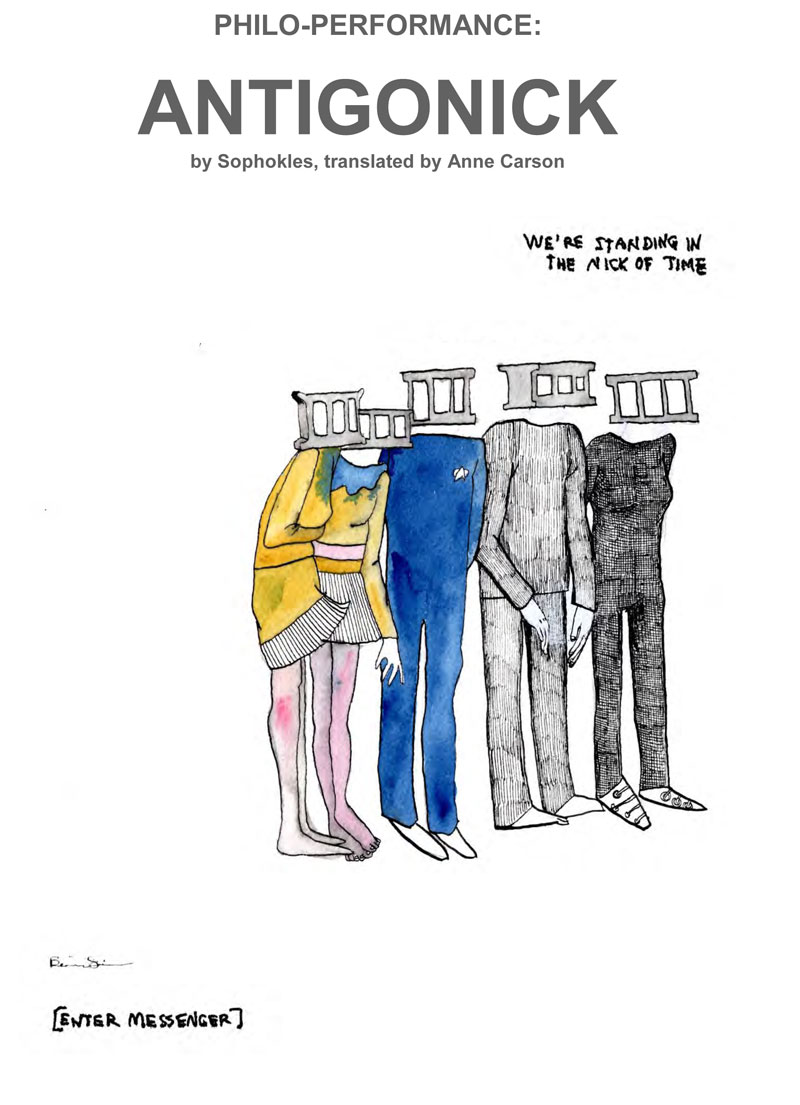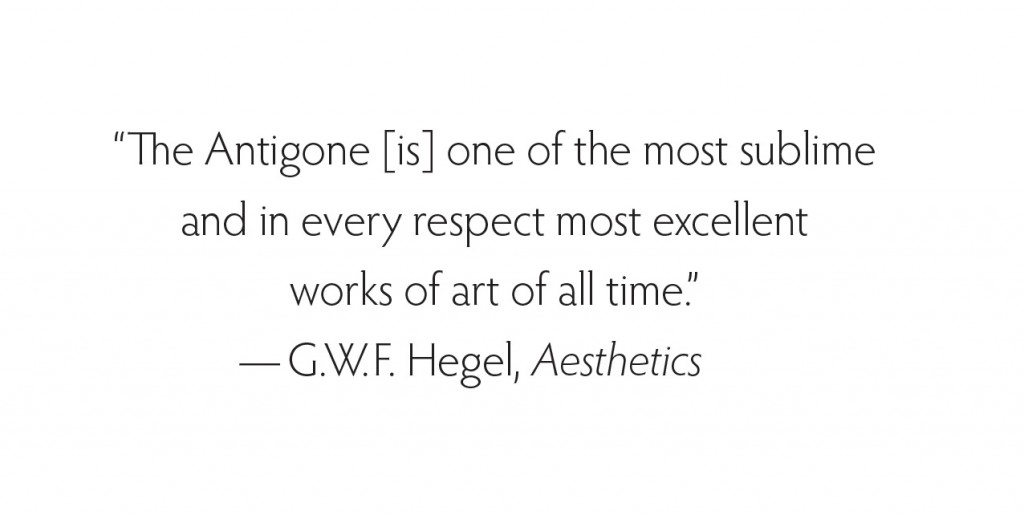A Public Reading and Discussion curated by Ben Hjorth
Amphithéâtre Richelieu
Université Paris-Sorbonne
2pm, Thursday 26 June 2013
Download a fuller description of the staged reading in PDF

CAST
- Antigone: Avital Ronell
- Ismene sister of Antigone: Elisabeth Angel-Perez
- Kreon king of Thebes: Judith Butler
- Haimon son of Kreon & Eurydike: Karen Shimakawa
- Eurydike wife of Kreon, mother of Haimon: Freddie Rokem
- Teiresias blind prophet of Thebes, led by a boy: Opie Boero Imwinkelried
- Guard: Timothy Murray
- Messenger: Paul Monaghan
- Chorus of old Theban Men: Laura Cull, Jon McKenzie, and conference audience
- Nick a mute part, [always onstage, he measures things]: Ben Hjorth
John Ireland will facilitate the post-reading discussion.
Thanks to assistant Jeanne Schaaf and conference co-organizer Anna Street

Who then is Antigone within such a scene, and what are we to make of her words, words that become dramatic events, performative acts? She is not of the human but speaks in its language… If she is human, then the human has entered into catachresis: we no longer know its proper usage… Antigone is the occasion for a new field of the human, achieved through political catachresis, the one that happens when the less than human speaks as human, when gender is displaced, and kinship founders on its founding laws. She acts, she speaks, she becomes one for whom the speech act is a fatal crime, but this fatality exceeds her life and enters the discourse of intelligibility as its own promising fatality, the social form of its aberrant, unprecedented future.
Judith Butler, Antigone’s Claim, 82

Effet de focalisation, dans un texte, autour d’un lieu impossible. Fascination par une figure irrecevable dans le système. Insistance vertigineuse sur un inclassable. Et si l’inassimilable, l’indigeste absolu jouait un rôle fondamental dans le système, abyssal plutôt, l’abîme jouant un rôle quasi transcendantal et laissant se former au-dessus de lui, comme une sorte d’effluve, un rêve d’apaisement ? N’est-ce pas toujours un élément exclu du système qui assure l’espace de possibilité du système ? Le transcendantal a toujours été, strictement, un transcatégorial, ce qui ne pouvait être reçu, formé, terminé dans aucune des catégories intérieures au système. Le vomi du système.
Jacques Derrida, Glas, 171, 183
The effect of focusing, in a text, around an impossible place. Fascination by a figure inadmissible in the system. Vertiginous insistence on an unclassable. And what if what cannot be assimilated, the absolute indigestible, played a fundamental role in the system, an abyssal role rather, the abyss playing an almost tran-scendental role and allowing to be formed above it, as a kind of effluvium, a dream of appeasement? Isn’t there always an element excluded from the system that assures the system’s space of possibility? The transcendental has always been, strictly, a transcategorial, what could be received, formed, terminated in none of the categories intrinsic to the system.
The system’s vomit.
Jacques Derrida, Glas, 151,162
Dear Antigone,
I take it as the task of the translator to forbid that you should ever lose your screams.
Anne Carson, ‘The Task of the Translator of Antigone’

Illustrations by Bianca Stone, used by permission of New Directions Publishing Corp

